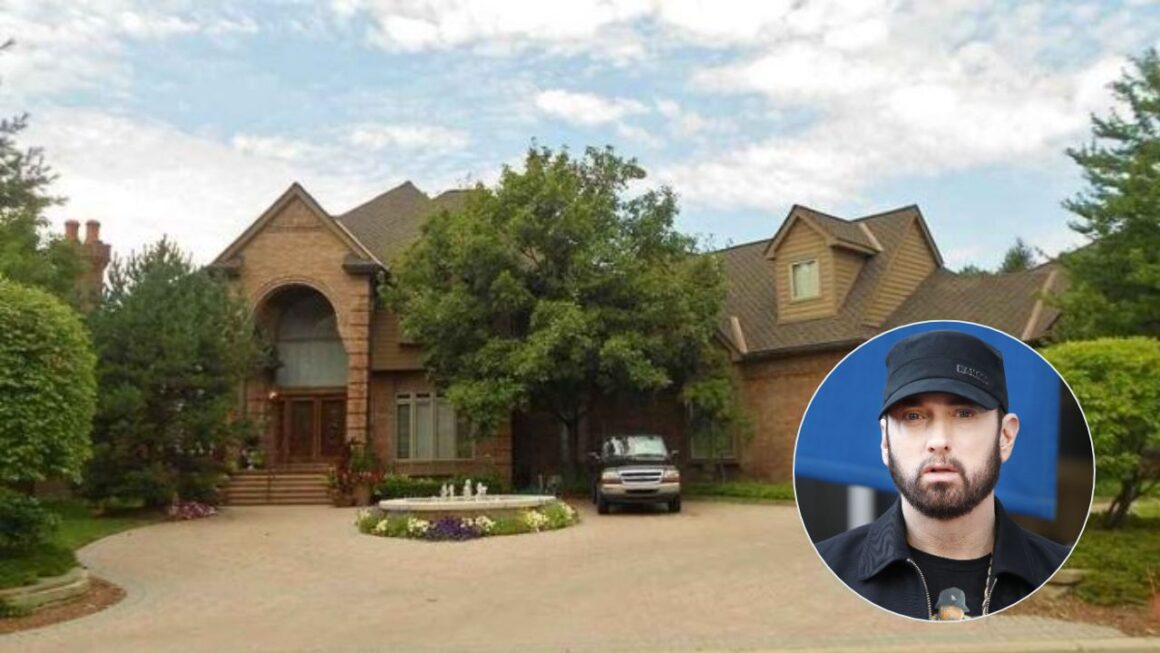Decades into his career, Eminem’s name still holds enough weight to make Architectural Digest dive deep — even if Slim Shady isn’t giving them the grand tour himself. Instead, AD pieced together a unique look at Marshall Mathers’ real estate legacy through public records and past interviews, and the story is as reflective and raw as his lyrics.
The House That Raised a Legend
Eminem’s infamous childhood home in Detroit, immortalized on The Marshall Mathers LP cover, became a symbol of his rise from poverty. He had a complicated relationship with the place — filled with both pain and pride. “To go back to where I grew up and finally say, ‘I’ve made it,’ is the greatest feeling in the world,” Em once said.
The house burned down in 2013, but not before appearing again — now in decay — on The Marshall Mathers LP 2. Em later sold 700 bricks from the demolished home as collector’s items. The empty lot is now being turned into a bee sanctuary — a poetic twist, turning trauma into transformation.
The Purple-Carpet Era
In 1999, after The Slim Shady LP, Em purchased a 5,000-square-foot home in Sterling Heights with then-wife Kim Scott. It had wild renovations like purple carpet, but the price of fame was steep: constant fans, stolen signs, and zero peace.
He tried to sell it for $750K but only got $475K in 2001. The purple carpet? First thing the new owners ripped out.
The Fortress in Clinton Township
His longest-standing home, bought in 2000 for just under $1.5 million, remains Eminem’s base. Nearly 9,000 square feet of privacy, with every amenity imaginable — a spa, sound system, sunroom, and even a 2020 home invasion he personally diffused.
In Elevator, he rapped:
“This is my house, all nine thousand feet.”
Despite success, he never fled Michigan. “I can always go back… and that’s important,” he said. The man who became a global icon never abandoned his roots.
The Mansion He Let Go
In 2003, Em added a 17,500-square-foot Oakland Township estate to his portfolio. A luxury getaway with walking trails, a waterfall pool, and an elevator — which he bragged about on Relapse: Refill:
“I’m living in a house with a fucking elevator.”
But the retreat was temporary. He sold it in 2017 for just $1.9 million — a huge loss, but maybe a symbolic one.
Even without a glossy feature spread, the fact Architectural Digest is still chasing Eminem’s shadow proves it: he’s more than a rapper. He’s an era. A myth. A man who never left home — and never had to.






